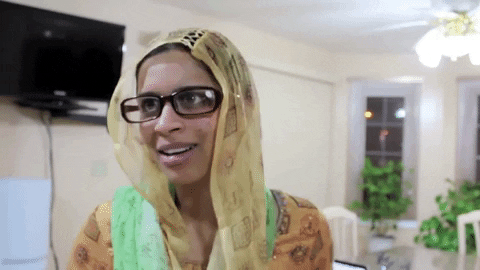As a brown kid, a universal experience is hearing your parents tell you it’s not you they don’t trust, it’s society. “Beta I trust you, I do not, however, trust others.” They say this one statement, you let out a sigh of frustration, accept your fate and walk away.

Here, let’s break down whether it’s really us, society or themselves that our adults seem to consistently question. Primary socialization takes place until a child is five years old, whereby a child looks up to and imitates primary caretakers. The learning process takes place and branches into secondary socialization through childhood and early teen years. It is when children develop personalities and identities, which is shaped through social experiences. During this period, it is essential for role models to display positive examples for children to learn from. Primary socialization teaches children to think logically, symbolically and abstractly.
So, begs the question: if our identities are developed through imitation during the primary and secondary stage, and parents introduce children to certain behaviors and spark self-awareness, why would they not trust children to make key decisions? To this, they usually say children are too naive to trust their judgment, and that no parent wants to see a child fall on their face due to even the smallest mistakes.
However, how does one learn, and how does one have complete confidence in themselves and their decisions without falling on their faces a few times, to learn from their mistakes? If an individual were to not make mistakes and take risks, I suppose they’d be consumed with self doubt and ‘what if’s’.

Additionally, parents want the best for their offspring, which means that children are exposed to the best of the world, and raised in the best of ways. So, would it not be fair for a parent to not just place trust in their children, but also in their parenting methods and the years they invested in raising the child?
Next, society. It is essential for individuals to accept that societies are made of collective individuals. If a society has issues, then those issues are likely projected onto and deeply rooted in individuals. For society to rid itself of its problems, individuals have to face these problems and heal from them. It is essential for parents to heal from generational trauma and guilt before raising children because negativities have a way of subconsciously coming forth and affecting one’srelationship (with themselves as well as others). So, for parents to say they don’t trust society, is it a way of saying they don’t trust themselves? Because if they have faith in their parenting methods, they should be confident in their children to make good decisions and more importantly, bounce back from things that may not go their way.
The process of having faith is one like a free fall. The hardest part is the first time, and once that’s done, it does not get more difficult. It allows children to grow as self-aware individuals and lets parents have pride in their socialization of a child. It allows two-way communication and for parents and children to develop stronger bonds with each other.
Obviously the above theory has many situational arguments, but not passing down generational trauma is something every new-age parent should consider when trying to raising a more confident, secure future generation.









What do you think?
You must be logged in to post a comment.